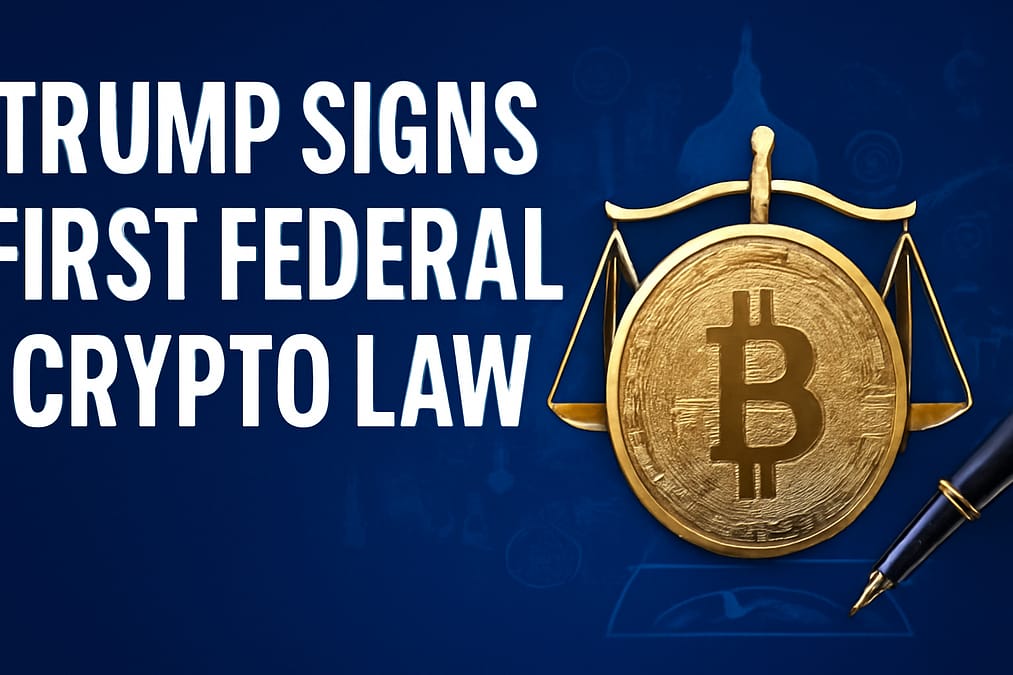In a historic move, former President Donald Trump has signed into law the GENIUS Act, marking the first time the U.S. federal government has officially regulated cryptocurrency. This landmark legislation aims to bring much-needed clarity to the rapidly growing digital currency market. Here’s what you need to know about this groundbreaking development.
What Is the GENIUS Act?
The GENIUS Act introduces clear federal regulations for cryptocurrencies, including stablecoins and digital asset exchanges. The law provides a framework for creating a national regulatory body that will oversee all crypto transactions and ensure compliance with existing financial laws. This is a huge step toward legitimizing cryptocurrencies in the financial world.
Why Is This Important?
With the explosive rise of Bitcoin, Ethereum, and other digital currencies, there has been growing concern about their regulation. This new law aims to protect consumers and investors while fostering innovation in the industry. For the first time, cryptocurrency will be treated with the same level of oversight as other financial assets, like stocks and bonds.
Key Features of the Law
- Consumer Protection: The law ensures that digital currency users are protected from fraud, theft, and market manipulation.
- Clear Guidelines: Financial institutions and crypto exchanges must now comply with federal regulations, making the industry more transparent.
- Global Standards: The U.S. aims to set a global example for crypto regulation, influencing other countries to adopt similar measures.
How It Affects Crypto Enthusiasts
For crypto enthusiasts and investors, this law brings a sense of stability to the market. No longer will there be confusion about the legality of certain crypto activities, especially when it comes to stablecoins and transactions. The new law opens the door for more traditional financial institutions to integrate cryptocurrency into their services.
Industry Reactions
The crypto world has largely welcomed the new regulations. Experts believe that clear federal rules will encourage more institutional investment and help curb illegal activities such as money laundering and fraud. However, some crypto purists argue that too much regulation could stifle innovation in the space.
What’s Next for Crypto Regulation?
The passage of the GENIUS Act signals the beginning of a new era for digital currencies. Moving forward, the Federal Reserve and other regulators will work to fine-tune the details of the law and implement additional rules. Expect more developments in the coming months, as the U.S. works to balance regulation with fostering innovation in the crypto industry.
Conclusion
With the signing of the GENIUS Act, Donald Trump has set a precedent for the regulation of cryptocurrencies in the U.S. This is a game-changer for the industry, offering clarity, protection, and the promise of a more stable future for digital currencies. Crypto enthusiasts, investors, and the entire industry are watching closely as the law begins to shape the future of digital finance.

